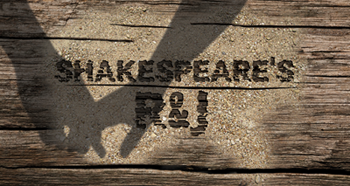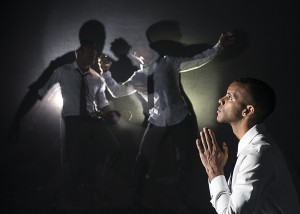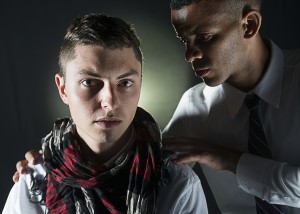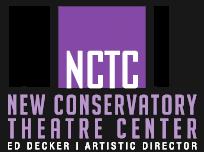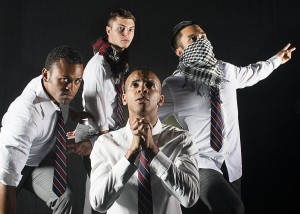REIMAGINING THE REIMAGINED AT NCTC
No one can deny why Romeo and Juliet has achieved cult status. Not only is Shakespeare’s comic tragedy one of the most enduring stories ever told, but it is a miracle of construction, containing highly relatable and seemingly countless universal themes and motifs that magically intertwine: War, bad timing, kinship, honor, love and destiny among them. Two teenagers from feuding families fall in love, but the ancient grudges and irrational combativeness of the Montague and Capulet clans force the adolescents to marry in secret. A series of misfortunes and hotheadedness lead to a heartbreaking conclusion, resulting in the possibility of reconciliation for the surviving families.
Performed as written, Romeo and Juliet ranks with Hamlet as one of Shakespeare’s most performed plays, but since Peter Brook’s 1947 version and Franco Zeffirelli’s edited and cast-appropriate Old Vic production in 1960 and film in 1968, this timeless tale has been given countless reinterpretations and revisions: Just in the past few years, Stage and Cinema has covered musical versions (West Side Story, The Last Goodbye), a high-speed rendition (Zombie Joe’s), vaudeville (The Four Clowns), a drinking game show (Shotspeare), and ballet (Canada, Joffrey).
In 1997, Joe Calarco, a resident director and playwright of Expanded Arts, a storefront theater in New York’s lower East Side, presented a version titled Shakespeare’s R&J that took much of the Bard’s language and brought a most unlikely freshness and relevancy to the tale of forbidden love. Calarco takes the strict supremacy of Verona’s male-controlled civilization’”and its vigorous virility’”and conveys it to a modern-day all-boys’ Catholic military boarding school. With a cast of four men, the teens of Shakespeare’s R&J find the prohibited text of Shakespeare’s work under a wooden floorboard and perform the play as kind of a forbidden game which brings violence, betrayal, lust, love, and mortality into their own lives. Placing the world of Romeo and Juliet within this inflexible sheath of masculine-organized principles not only highlights the deep-seated nature of patriarchal Verona, but the four-centuries-old play becomes even more intense and immediate at the school’s locale, where verboten same-sex attractions spark.
The play took the theater world by storm, having a hugely successful follow-up run Off-Broadway, after which it caught fire in various productions around the globe. But it was San Francisco’s New Conservatory Theatre Center that presented its West Coast Premiere in a gripping 2002 rendering. That production proved the all-male casting’”normal for the cross-gender performances of the Elizabethan stage where a sixteenth-century audience cherished such conventions’”actually elucidated the entrenching and repressing family values of contemporary society. “Don’t Ask, Don’t Tell” was still seen as a fair compromise for gay soldiers, and there was no sign that Gavin Newsom, then mayor of San Francisco, would start issuing marriage licenses to same-sex couples in City Hall two years later. (The original production followed on the heels of former President Clinton signing the Defense of Marriage Act in 1996, and Matthew Shepard’s death occurred during the run).
With the striking down of DOMA, and other rights permeating the country, we seem to forget that gay folk in foreign lands are still in emotional bondage. Some can even die for coming out of the closet. Beginning previews this week, NCTC returns to this must-see theater, but this time it is reimagining the reimagining in an all-new daring production that moves the action to a Jesuit school in Cairo, Egypt, where revealing who you are can still be a crime. Raising the stakes of an already highly volatile play is director Ben Randle, NCTC’s first Artistic Associate. By setting this tale of discovery and delight amidst a dangerous world of repression, Randle and this production continue NCTC’s commitment to plays that champion social justice and a shared humanity.
The ensemble of Shakespeare’s R&J features Taj Campbell, James Arthur M., Adam Odsess-Rubin, and Mike Sagun. A post-show discussion with the cast follows the Sunday November 23rd 2:00 performance.
publicity photos by Lois Tema
Shakespeare’s R&J
New Conservatory Theatre Center
NCTC’s Walker Theater, 25 Van Ness Ave @Market
low-cost previews November 7 – 14, 2014
(some Pay-What-You-Wish tickets set aside for each preview)
plays November 15 – December 14, 2014
Wed – Sat at 8; Sun at 2
for tickets, call 415.861.8972 or visit nctcsf
